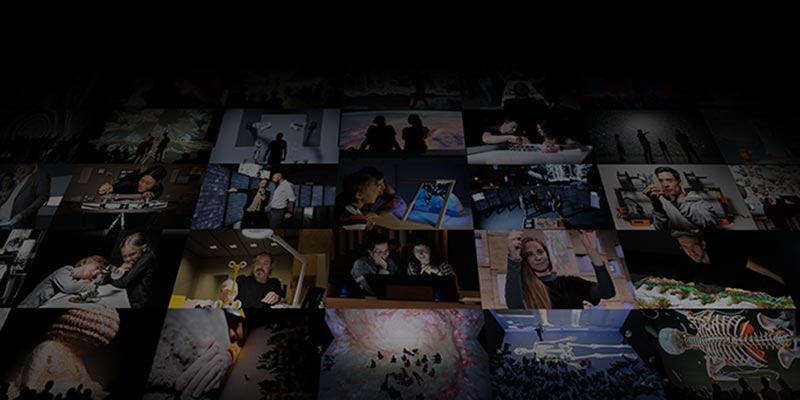The preparations for this years’ Ars Electronica Festival “A New Digital Deal” are already in full swing. Last year we successfully introduced our hybrid online garden concept with many partners all over the world. They are not only producing a variety of top-notch content for our online festival, but will also be hosting many local events. With “Inside Festival” we want to share our excitement about the upcoming festival with you! Live from our streaming studio in Linz we will give you a sneak-peek of our partner gardens’ program as well as our local events in Linz – once weekly in July and even twice weekly in August. The series will cover different topics and themes, e.g. Coded Biases or the “Perspective of the Youth” by create your world, our well-known festival format for young people. If you want to get even more background info’s and snippets of the festival go check out our blog at https://ars.electronica.art/aeblog. See you at the festival!
In the second session of “Inside Festival”, Martin Honzik and Manuela Hillmann will address the topic of “Soil” that connects us all. The Festival Garden Indonesia, entitled “Infinity“, organized by the MAG (MediaArtGlobale) Festival, will tell us about the origin of Sambal, a chili spice paste, that is a unique symbol of the Indonesian culture and identity and springs from the fertile soil of Indonesia.
La República de la Montaña, which hosts the Garden Andes, was founded as a utopian micronation, decentralized and intangible, which activates an ephemeral appearance from the foothills of the Andes towards the limits of our perception. It is a permaculture farm located in Peñalolén, who wants to bring us closer to nature and introduces their community project “Cooking for Freedom“. A project that arose out of necessity and uses the fruits of Chile’s soil to bring people together.
Grounding is a refocusing of our gaze, a search for a new connection with what is under our feet. Understanding our ethical role in the planet’s transformation requires the ability to recognize nature as a complex self-sufficient system. We are only a part of it. Natural formations exist as open systems of continuous interspecies communication. The ITMO University in St. Petersburg takes us on a journey to underground structures that become a manifestation of the soil of the Anthropocene themselves. The reinforced concrete cave left by people strives to resemble the natural landscape, to fit into it unnoticeably. A mythical pattern of the cultural and physical landscape, the bunker organizes the same hidden life inside itself, striving to be filled with new content, acting as an inhuman actor of an increasingly dark

